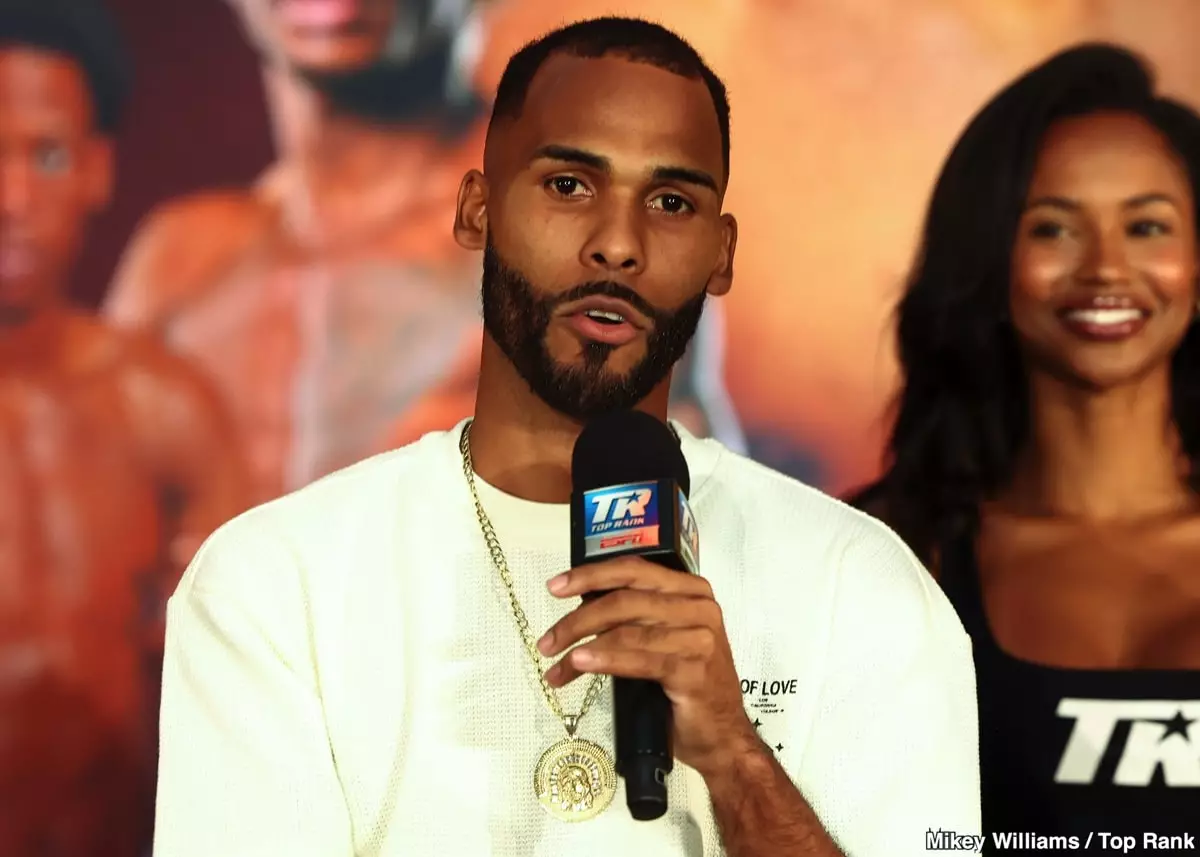In an arena where the stakes are perpetually high, Keyshawn Davis’s recent fight debacle was not merely a misstep; it was a monumental blunder that rippled through the boxing community. By coming in more than four pounds over the weight limit before his scheduled fight against Edwin De Los Santos, Davis not only compromised his own readiness but also cast a shadow over the aspirations of his opponent. This incident accentuates a significant issue in professional boxing—weight management and the discipline it entails. For De Los Santos, a promising contender, the fallout has been nothing short of disastrous, leading to a painful split from his promoter, Sampson Lewkowicz.
Weight issues in boxing are not new, but they always carry severe consequences. When a fighter fails to make weight, particularly by such a wide margin, it sends a signal that discipline may be lacking, and it raises safety concerns over the upcoming bout. A fighter heavier by four pounds is no mere statistic; it translates into a potential physical disadvantage for their opponent, who has likely trained under the assumption of facing a fighter of their caliber on an even playing field. Davis’s miscalculation turned what should have been a showcase of his skills into a cautionary tale of negligence.
Conflict Amidst Chaos
Adding an even more convoluted layer to the scenario, Davis’s night took a turn towards chaos as he got into an altercation with his brother’s opponent later that evening. Such actions might scream of immaturity or heightened emotions, but they also illuminate a deeper issue within the world of boxing: the mental pressure that comes with public expectations and personal ambition. Davis’s inability to confront the consequences of his weight mishap without resorting to physical altercations only furthers the narrative of a young athlete at war with himself.
Conversely, De Los Santos’s reaction to the weigh-in fiasco reveals insights into the psyche of fighters who are often driven by an insatiable thirst for glory. In an interview, he expressed his eagerness to fight Davis despite the known risks, emphasizing that he would have willingly entered the ring despite the severe weight difference. “I wanted to fight Keyshawn no matter the circumstances. I wanted the title,” De Los Santos lamented. This mentality, while admirable, also raises questions about the support systems in place for fighters, particularly when it comes to their physical health.
The Aftermath: Career Crossroads for De Los Santos
When a fighter like De Los Santos suddenly finds himself without a promoter, the implications are significant. The promoter-fighter relationship is crucial for navigating the treacherous waters of professional boxing, and after a fallout with Lewkowicz, De Los Santos’s options appear bleak. Lewkowicz made a prudent decision by prioritizing his fighter’s wellbeing over financial gain, a rare instance of morality prevailing in a sport often punctuated by greed. “I believe I did him right,” he asserted, emphasizing the absurdity of pitting a smaller fighter against someone who had unfairly gained weight.
Yet for De Los Santos, looking towards the future is daunting. He seeks a new promoter that can navigate him through this turmoil, and with a record of 16 wins, 2 losses, and a penchant for knockouts, his potential remains untapped but endangered. The market for new promoters is evolving, but will someone recognize the talent beneath the disappointment and step forward to guide his promising career?
Returning to Form: The Road Ahead
Moreover, one cannot overlook the financial fallout, as De Los Santos missed out on a larger payday that he could have secured had the bout proceeded. Fighters like him face the harsh reality that money often drives decisions, not just for themselves but their promoters as well. The substantial financial penalties a weigh-in discrepancy incurs can amplify the pressure to compromise safety for success.
As De Los Santos embarks on the search for a new promoter, he is forced to contemplate deeper questions about the nature of his career. This recent setback may represent a turning point, forcing him to reassess not only his immediate actions but also the long-term trajectory of his boxing journey. The leisure of complacency is stripped away, and what remains is a raw opportunity for personal and professional growth—as difficult as it may feel in the wake of disappointment.
In the high-stakes world of boxing, the importance of accountability and discipline cannot be overemphasized. The narratives that emerge from such situations serve to remind young fighters about the delicate balance between ambition and responsibility. For both Davis and De Los Santos, the road ahead promises to be fraught with challenges, but it also offers an arena for redemption and resilience.

